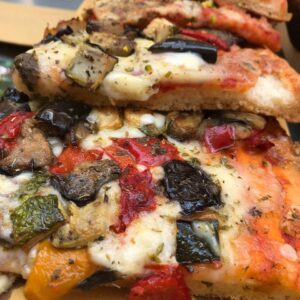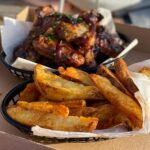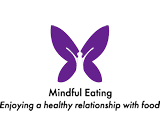 The Client’s Relationship With Food
The Client’s Relationship With Food
If a person feels out of control of their eating, struggles to eat in a healthy and balanced way, regularly overeats or is finding it hard to maintain a healthy weight, it’s really important to address their relationship with food. Many people are keen to lose weight, but having a weight loss goal by itself just isn’t enough if they have problematic eating habits and perhaps regularly turn to food to ‘cope’ or feel better. By becoming more aware of your relationship with food and pinpointing the main reasons why you might be overeating, you can then find strategies to improve your eating habits. So rather than embarking on yet another diet in an attempt to curb your eating, a much more effective strategy is to embark on a journey of self-awareness. Awareness is power, and with increased awareness positive change is possible.
In order to improve your relationship with food, you need to improve your relationship with yourself.
Understanding Your Relationship With Food- And Yourself
Thinking about how you might be using food to cope or self-soothe, and identifying possible eating triggers and what food symbolises for you is a really useful exercise to help you understand your relationship with food. It’s not about blaming yourself or others, but about developing self-awareness and self-care practises, both of which are vital for positive change. When you’re more self-aware and have a better understanding of how you think and behave, and if you realise that you’re struggling with some aspect of yourself or something in your life, you can become more self-compassionate. There’s no point in beating yourself up and thinking of yourself as simply greedy or having no willpower- the psychology of eating is much more complex than that. Eating behaviour is just one part of a much bigger picture, including lifestyle management (ie stress levels), life fulfillment (including relationships and career), body image, self-worth, personality, mental health and past experiences. It’s helpful to think of a problematic relationship with food as a symptom of some deeper underlying issue. Some ways in which you can start to explore and improve your relationship with food might include:-
 Identifying your eating triggers (internal and external) such as certain people, situations or mindset
Identifying your eating triggers (internal and external) such as certain people, situations or mindset- Self-care strategies: finding ways to look after yourself on a daily basis, fulfil your own needs and support your mental health; knowing when life and all its demands are becoming too much and identifying how to take action
- Developing a positive sense of self: becoming more self-supportive and being kinder to yourself- being your own ‘cheerleader’; turning down the volume on your inner critic
- Finding alternative coping strategies (other than food- because often, it’s not food that we need)
- Being willing to explore your inner feelings, without being fearful of them (feelings are a helpful guide and can indicate that something needs to be addressed, such as feeling angry, resentful, sad, lonely, stressed, guilty or jealous)
- Addressing secret eating by working out why you eat when nobody’s looking- secret eating is linked to guilt and shame around food, and can also be linked to poor body image
- Being willing to ask for support from others when you need it, as well as communicating your needs to others and putting in boundaries when it’s necessary
- Being aware of and addressing any ‘crooked’ or self-limiting thinking, attitudes and beliefs that could be keeping you stuck (eg in relation to life, body image, food, dieting etc)
- Learning to live in accordance with your own values and belief systems, rather than someone else’s.
If you think you might be using food in an unhealthy or self-destructive way, it’s really important that you learn to invest in yourself if you want to improve your relationship with food. Gaining better self-insight without being self-critical, being patient with yourself and becoming more self-compassionate is the foundation on which to identify issues and find strategies to help you address your needs and break old habits, thought patterns and beliefs that no longer serve you.
Childhood
Sometimes our past can have a significant influence on our eating habits as adults- this is why exploring childhood and the client’s overall relationship with food is such a key part of a person’s relationship with food. If you were overweight as a child, any ongoing critical comments, whether from family or through bullying might have led you to falsely believe that you were destined to be fat, leading to a sense of hopelessness and a ‘what’s the point’ attitude, which can cause a person to self-sabotage if they’re dieting in order to lose weight. Messages and belief systems that we might have internalized from childhood can also cause us to ‘play old tape’, which is why it’s important to not allow the past to affect the now and the future. However, I work with a lot of clients whose past still affects them in a negative way today. I therefore help clients to work on ‘wiping the slate clean’ and start a new journey based on their adult here and now that can lead to positive change and a sense of empowerment. Looking at childhood is never a blame game, it’s just a way of identifying the factors that have been contributing to the individual’s behaviours, belief systems, self-worth and outlook on life. It’s also helpful to be aware of the fact that problematic eating habits might not stem from childhood but might be triggered by an event later on in life such as a toxic relationship, divorce or bereavement.
Using Food To Self-Soothe
 If it wasn’t the ‘done thing’ to get upset or express feelings in your family, you might have learned as a child that it was necessary to pretend everything was ok, even when it wasn’t. If a child doesn’t learn to express feelings or if they didn’t receive the emotional support they needed from caregivers they might have learned to ‘self-soothe’ with food instead. In this way food might then be used, in adulthood, to self-soothe or to distract oneself from emotional discomfort, or a person’s knee-jerk reaction might be to eat rather than talk to others about what’s bothering them. Using food in this way can then result in getting trapped in a cycle of emotional eating. For some individuals, it can result in binge-eating and secret eating. You can read more about emotional eating HERE.
If it wasn’t the ‘done thing’ to get upset or express feelings in your family, you might have learned as a child that it was necessary to pretend everything was ok, even when it wasn’t. If a child doesn’t learn to express feelings or if they didn’t receive the emotional support they needed from caregivers they might have learned to ‘self-soothe’ with food instead. In this way food might then be used, in adulthood, to self-soothe or to distract oneself from emotional discomfort, or a person’s knee-jerk reaction might be to eat rather than talk to others about what’s bothering them. Using food in this way can then result in getting trapped in a cycle of emotional eating. For some individuals, it can result in binge-eating and secret eating. You can read more about emotional eating HERE.
Not Knowing What You’re Really Craving
Food cravings or a desire to binge eat can be a reflection of something else going on. For example, a person might feel lonely, bored, unfulfilled, in need of support or they might be in need of some pleasure. A person might have a desire for more fulfilling, closer relationships, but if they experienced being let down by others in childhood or they’ve emerged from a toxic relationship in adulthood, this might have led to an inability to trust or rely on others. If something is lacking in a person’s life then food, because of its easy availability, can become a best friend, whereby eating provides temporary relief or distraction from a deeper need or craving. When food becomes a person’s main source of pleasure or coping, this can lead to an unhealthily strong attachment to food. As a client once said to me, “I feel so out of control of things in my life, but food is something I CAN have”.
Eating To Fill An Emotional Void
If a person received little love, encouragement and nurturing as a child, or spent much time alone, that child might have grown up emotionally unfulfilled  and with a poor sense of self. As an adult they might even find it difficult to enter intimate relationships, leading to isolation. There is quite a strong link between being emotionally ‘full’ or ‘empty’ and being physically full or empty, and the person may find it hard to distinguish between the two- they might turn to food in an attempt to fill an emotional void, and feel the need to eat the moment they feel emotionally ‘hungry’. An unhealthy relationship with food may develop, whereby there is an unhelpful preoccupation with food. This preoccupation with food can lead to losing touch with hunger cues or a fear of hunger, and it might also lead to eating until excessively full. If a person has little experience of loving, fulfilling relationships, they might not have the resources to nurture and care for themselves- there might be self-loathing, leading to a harsh inner critic, low self-esteem, a lack of self-respect and possibly self-neglect, leading to poor food choices, an unhealthy lifestyle and possibly self-destructive overeating.
and with a poor sense of self. As an adult they might even find it difficult to enter intimate relationships, leading to isolation. There is quite a strong link between being emotionally ‘full’ or ‘empty’ and being physically full or empty, and the person may find it hard to distinguish between the two- they might turn to food in an attempt to fill an emotional void, and feel the need to eat the moment they feel emotionally ‘hungry’. An unhealthy relationship with food may develop, whereby there is an unhelpful preoccupation with food. This preoccupation with food can lead to losing touch with hunger cues or a fear of hunger, and it might also lead to eating until excessively full. If a person has little experience of loving, fulfilling relationships, they might not have the resources to nurture and care for themselves- there might be self-loathing, leading to a harsh inner critic, low self-esteem, a lack of self-respect and possibly self-neglect, leading to poor food choices, an unhealthy lifestyle and possibly self-destructive overeating.
A History Of Dieting Can Contribute To A Poor Relationship With Food
 A person’s relationship with food and how they approach dieting as an adult might be influenced by how they approached dieting as a young adult or teenager. If, as a teenager, they went on very strict diets to lose weight, they might have learned to associate dieting with hunger and discomfort, and have the false belief that in order to lose weight or to be in control of food, you have to be hungry all the time or that the only solution is to go on a diet. The belief that losing weight has to involve hunger, restriction and having good willpower can result in procrastinating- putting off the diet until tomorrow because you don’t like dieting but believe that there’s no other solution, and you don’t trust yourself around food. When we procrastinate we might find ourselves coming up with a whole range of excuses to justify overeating, eating certain foods, or putting off the diet. The ‘last supper’ mentality is where a person overeats the night before going on a diet, but then might continue to overeat for days because they’re putting off the diet. Whilst not being on a diet can be scary for some, by giving yourself choice and permission around food and relaxing the ‘food rules’, you can find that you actually start to eat less- and if you practise giving yourself more choice and permission, you may find that you start trusting yourself more around food and feel more in charge of the food environment.
A person’s relationship with food and how they approach dieting as an adult might be influenced by how they approached dieting as a young adult or teenager. If, as a teenager, they went on very strict diets to lose weight, they might have learned to associate dieting with hunger and discomfort, and have the false belief that in order to lose weight or to be in control of food, you have to be hungry all the time or that the only solution is to go on a diet. The belief that losing weight has to involve hunger, restriction and having good willpower can result in procrastinating- putting off the diet until tomorrow because you don’t like dieting but believe that there’s no other solution, and you don’t trust yourself around food. When we procrastinate we might find ourselves coming up with a whole range of excuses to justify overeating, eating certain foods, or putting off the diet. The ‘last supper’ mentality is where a person overeats the night before going on a diet, but then might continue to overeat for days because they’re putting off the diet. Whilst not being on a diet can be scary for some, by giving yourself choice and permission around food and relaxing the ‘food rules’, you can find that you actually start to eat less- and if you practise giving yourself more choice and permission, you may find that you start trusting yourself more around food and feel more in charge of the food environment.
If a person has a history of failed dieting, they might start a diet and then self-sabotage because they don’t believe they’ll stick to the diet for long, or the diet might trigger overeating. They might lack self-belief to control their eating and yet because they might not trust themselves around food and they might have a fear of weight gain, or they have strong desires to lose weight because they hate their body, they keep embarking on diets in an attempt to curb their eating- this might result in an addiction to trying out all the diets in existence. Diets can also encourage a ‘good’ / ‘bad’ foods mentality, which can fuel an ‘all or nothing’ mindset and a sense of ‘failure’ around food. Instead, in order to improve your relationship with food, it’s helpful to adopt the notion that there is no ‘right’ or ‘wrong’ way of eating.
No one food is ‘bad’, it’s how much of it you eat and how often you eat it that counts.
Rebellious Eating
 If an individual experienced a parent always being on a diet, or the parent worried about the child being overweight, they might have restricted the child’s food in some way such as through rigid portion control or not allowing certain foods in the house. This might have resulted in the child overeating in secret to defy the parent, or overeating in adulthood to break free from the food restriction experienced in childhood, or as an adult still rebelling against the parent perhaps without being aware of it. Experiencing food restriction as a child may lead to a fear of deprivation, a fear of hunger or a sense of entitlement around food, possibly leading to a need for fullness, and therefore a person’s relationship with food might be unhealthy, dominated by overeating. Some people might find that in adulthood they rebel against strict diet rules, or feel angry if a partner or friend points out that they’re eating ‘bad’ foods or too much food, causing that person to eat only more. Rebellious eating has no benefit, and only harms the person doing the rebellious eating.
If an individual experienced a parent always being on a diet, or the parent worried about the child being overweight, they might have restricted the child’s food in some way such as through rigid portion control or not allowing certain foods in the house. This might have resulted in the child overeating in secret to defy the parent, or overeating in adulthood to break free from the food restriction experienced in childhood, or as an adult still rebelling against the parent perhaps without being aware of it. Experiencing food restriction as a child may lead to a fear of deprivation, a fear of hunger or a sense of entitlement around food, possibly leading to a need for fullness, and therefore a person’s relationship with food might be unhealthy, dominated by overeating. Some people might find that in adulthood they rebel against strict diet rules, or feel angry if a partner or friend points out that they’re eating ‘bad’ foods or too much food, causing that person to eat only more. Rebellious eating has no benefit, and only harms the person doing the rebellious eating.
Improving Your Relationship With Food Takes Time- But It’s Absolutely Possible
If you want to improve your relationship with food, it won’t happen overnight as there’s no quick fix. But try to approach the task with curiosity- the psychology of eating is quite fascinating, so see it as an interesting project. As long as you’re willing to be patient with yourself and kind to yourself, and prepared to do some self-reflection and inner work, once you gain more clarity about your relationship with food you will feel more empowered to improve it.
If you’d like some personalised support to help you address your relationship with food, give me a call for an initial chat: 07961 423120 or email me at info@mindfuleating.org.uk. I offer one-to-one sessions online (via Zoom) or the option of face-to-face sessions for those living locally (I’m based in Lightwater, Surrey).
One-To-Ones: SPECIAL OFFER: buy 3 sessions up front and get a 4th session FREE. To book sessions, contact me.
Online Workshop: ‘How To Change Your Eating Mindset’.
Talks: Please click HERE for latest topics and dates.
Click HERE to purchase tickets for any of my events via Eventbrite.
For more information about my work please see ‘Services‘.

